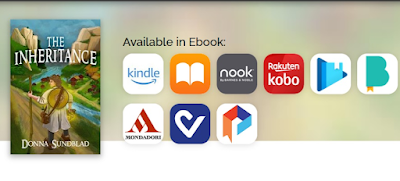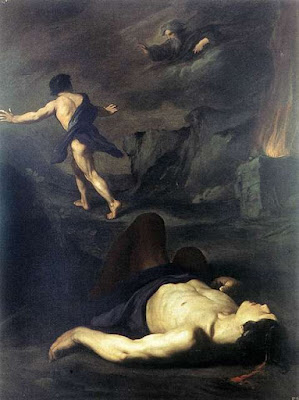Looking at first will be last and the last will be first in context
“And everyone who has left houses or brothers or sisters or father or mother or children or farms for My name’s sake will receive many times as much and will inherit eternal life. But many who are first will be last; and the last, first” (Matthew 19:29-30)
The next clue is that this is about people living for Jesus from the heart. Not just people following rules or trying to turn over a new leaf. These people have called upon the Lord and received the truth and spiritual life. They have repented, are born again, and willing to leave the things of this world behind. But what does this have to do with the first will be last or the last first? To understand that, let’s turn the page to the next chapter which continues this discourse. Let's look at Matthew 20:1-16.
“For the kingdom of heaven is like a landowner who went out early in the morning to hire laborers for his vineyard. And when he had agreed with the laborers for a denarius for the day, he sent them into his vineyard. And he went out about the third hour and saw others standing idle in the marketplace; and to those he said ‘You, too, go into the vineyard, and whatever is right I will give you.’ And so they went.
“Again he went out, about the sixth and ninth hour, and did the same thing. And about the eleventh hour, he went out and found others standing around; and he said to them, ‘Why have you been standing here idle all day long?’
“They said to him, ‘Because no one hired us.’
“He said to them, ‘You, too, go into the vineyard.’
“And when evening had come, the owner of the vineyard said to his foreman, ‘Call the laborers and pay them their wages, beginning with the last group to the first.’ And when those hired about the eleventh hour came, each one received a denarius.
“And when those hired first came, they thought that they would receive more; and they also received each one a denarius. And when they received it, they grumbled at the landowner, saying, ‘These last men have worked only one hour, and you’ve made them equal to us who have borne the burden and the scorching heat of the day.’
“But he answered and said to them, “Friend, I am doing you no wrong; did you not agree with me for a denarius? Take what is yours and go your way, but I wish to give to this last man the same as to you. Is it not lawful for me to do what I wish with what is my own? Or is your eye envious because I am generous?’ Thus, the last shall be first, and the first last.”
What does it mean the first will be last and the last will be first?
There it is again. “Thus, the last shall be first, and the first last.” This statement brackets this parable, so this is our third clue. This is where we will find the answer to our question.
The parable illustrates the meaning of the last first and first
last. It shows how as believers we all finish equally before God. We receive eternal
life by his grace no matter how long we’ve walked with him. Eternal life is
what he has promised to those who are His. It is his to give. None of us “deserve
it” because the wages of sin is death. But by his grace, he offers to cover
that sin, erase that debt, and grants us eternal life. It's our new wage once we are
redeemed. The one he promised. The redeemed are all the same in God’s eyes because when he looks
at us, he sees the blood of his son. So there is no first or last in God's eyes. We all get what he promised equally.







